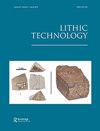Let’s Knap: Experiences in Teaching Lithic Studies in South Asia
IF 1.2
3区 社会学
Q2 ANTHROPOLOGY
引用次数: 0
Abstract
ABSTRACT South Asian prehistoric sites have rich and diverse lithic assemblages. The paucity of associated fossil evidence necessitates a strong focus on lithics for studies of hominin cognition. However, pedagogical approaches in Indian prehistory primarily focus on print/online content, wherein students get scarce opportunities to handle artefacts or experience processes of tool manufacture and use. Here, we discuss our initiatives in designing courses on South Asian prehistory focused on experimental knapping and structured to enhance skills and foster critical thinking. We present an overview of the conceptual and methodological approaches adopted, with implications for experimenting with different pedagogical approaches and exploring learning trajectories. We highlight issues of interest not only for the present and future but also for exploring aspects of knowledge transmission in the past. We advocate for the inclusion of sustained experimental components whilst teaching prehistory in South Asia.让我们来打:南亚地区石器研究教学的经验
南亚史前遗址具有丰富多样的岩屑组合。由于相关化石证据的缺乏,研究古人类认知的重点必须放在石器上。然而,印度史前史的教学方法主要集中在印刷/在线内容上,其中学生很少有机会处理人工制品或体验工具制造和使用的过程。在此,我们将讨论我们在设计南亚史前史课程时所采取的措施,这些课程以实验性的敲击为重点,旨在提高技能和培养批判性思维。我们概述了所采用的概念和方法方法,并对实验不同的教学方法和探索学习轨迹产生了影响。我们强调感兴趣的问题,不仅为现在和未来,而且为探索过去的知识传播方面。我们提倡在南亚教授史前史的同时纳入持续的实验内容。
本文章由计算机程序翻译,如有差异,请以英文原文为准。
求助全文
约1分钟内获得全文
求助全文

 求助内容:
求助内容: 应助结果提醒方式:
应助结果提醒方式:


